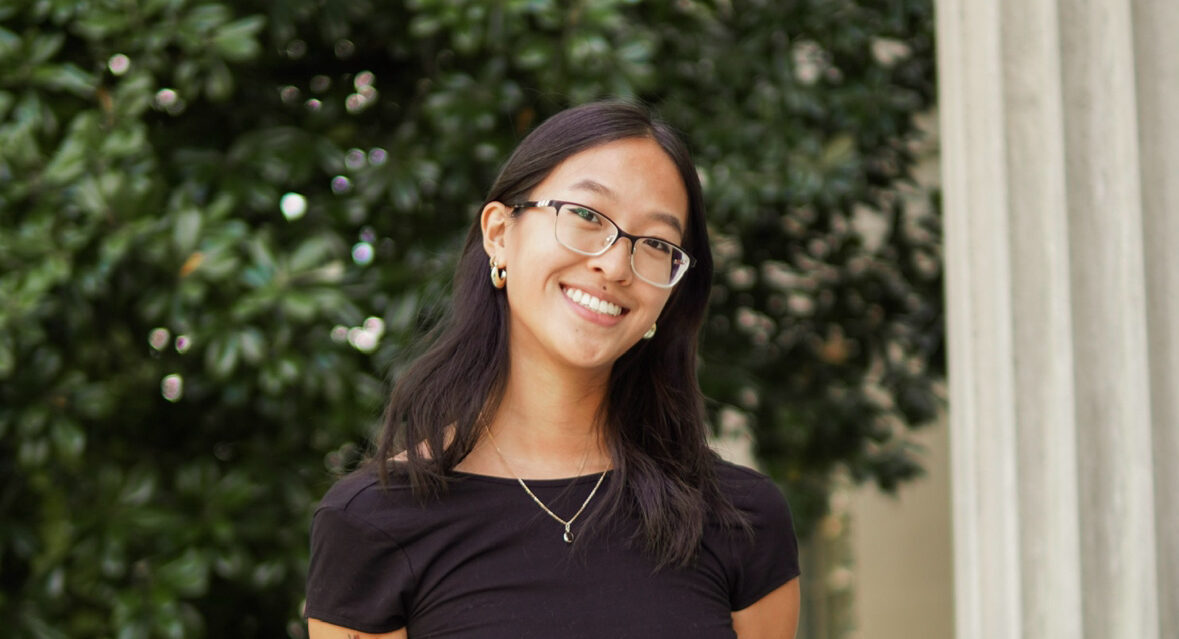Rong Xiaoqing | Sing Tao USA
When the Supreme Court overturned affirmative action over one year ago, many Chinese parents celebrated the ruling, believing that the discrimination suffered by Asian youth in college admissions had been corrected.
However, at the University of North Carolina (UNC), which was at the forefront of one of the two July 2023 cases, Chinese American undergraduate senior Sarah Zhang now sees fallout in the form of falling campus diversity. To counter shrinking diversity on campus in the post-affirmative action era, Zhang co-founded the student Affirmative Action Coalition with three Chinese classmates.
Zhang said that, growing up in a majority-white suburban Philadelphia town, she is well aware of the social, academic and professional discouragement that low diversity can bring to ethnic minorities like herself.
Zhang, who studies computer science and political science at UNC, added that the diversity of students on campus before the court ruling was one of her main reasons for deciding to attend.
Her parents are both from Shanghai, and her father came to the U.S. to earn a doctorate in the 1990s. Her parents obtained green cards through education and employment, and eventually became U.S. citizens, speaking primarily Chinese at home as Zhang was growing up.
When she first entered kindergarten, her English was “not good,” Zhang explained, and for this — alongside the fact that other Asian students were few and far between — she was often ostracized by her classmates.
In elementary school, too, she had almost no Chinese friends. During Chinese holidays and events like the Spring Festival, she would invite white classmates to her home to celebrate, but she found that they knew nothing about the cultural significance of such events.
“At that time, because there were very few ethnic minorities around me, I thought the only way to live was like that of white people. I only wanted to blend in, and I was very alienated from myself as Chinese,” she said.
In her high school, white students accounted for 85% of the student body, while Asians accounted for 6%. Although the history of ethnic minorities was taught in class, her own was almost always negative.
“Although Chinese Americans had achieved massive economic and social progress, the history we were taught of their contributions in the classroom was only about their past suffering. This confused me,” Zhang said.
What puzzled her even more was that once, in an AP History class, the teacher talked about the Japanese concentration camps, and some classmates turned around and asked Zhang what she thought.
“I was the only minority in that class, but I’m not Japanese,” she said.
When applying for college, Zhang visited many campuses hoping for more diverse student bodies; that of UNC made her fall in love with the school right away. When Zhang enrolled in UNC in 2021, white students still accounted for 66% of the student body.
“Although it is still a predominantly white school, for me, this is the most diverse environment I have been in since I was a child,” she explained. On campus, she was able to attend art exhibits by Black students, Chinese performances and taekwondo demonstrations, to name a few cultural offerings.
At that time, affirmative action court cases were already underway in colleges nationwide, but the issue was rarely discussed among UNC students. Zhang learned about the cases in September 2022, when she saw an online Asian American Justice Center (AAJC) newsletter recruiting college student volunteers to discuss affirmative action cases.
Zhang posted about the cases on Instagram, and received comments from three like-minded Chinese classmates. The four students then contacted AAJC and, with the organization’s guidance, established the Affirmative Action Coalition on campus. The group organized affirmative action symposiums and posted information on social media to educate other student on campus; soon, the group grew from its original four students to a multiethnic collaborative of over 30.
After the 2023 Supreme Court ruling, the proportion of Asian students admitted to UNC’s first post-affirmative action class increased by one percentage point to 25.8%, while the proportion of Black students declined significantly, from 10.5% to 7.8%. Meanwhiile, the school canceled its Diversity, Equity and Inclusion (DEI) policy last semester, let go of its official DEI staff role and no longer allocated funds to DEI-centered campus projects.
That academic year, a UNC professor also filed a lawsuit against the school claiming that it decided not to renew his contract because he spoke out about the injustice suffered by Aboriginal people in history.
In response, Zhang and her classmates have ramped up Affirmative Action Coalition activities. In particular, the group has begun to advocate for college and university admissions transparency and cooperate with local community organizations to help low-income minority high school students submit college applications.
As she prepares to graduate in May, Zhang said she hopes that these efforts to maintain diversity on campus in the post-affirmative action era will continue well after she graduates.
This coverage is made possible through the Ethnic Media Services / AAJC reporting project on diversity after affirmative action.





